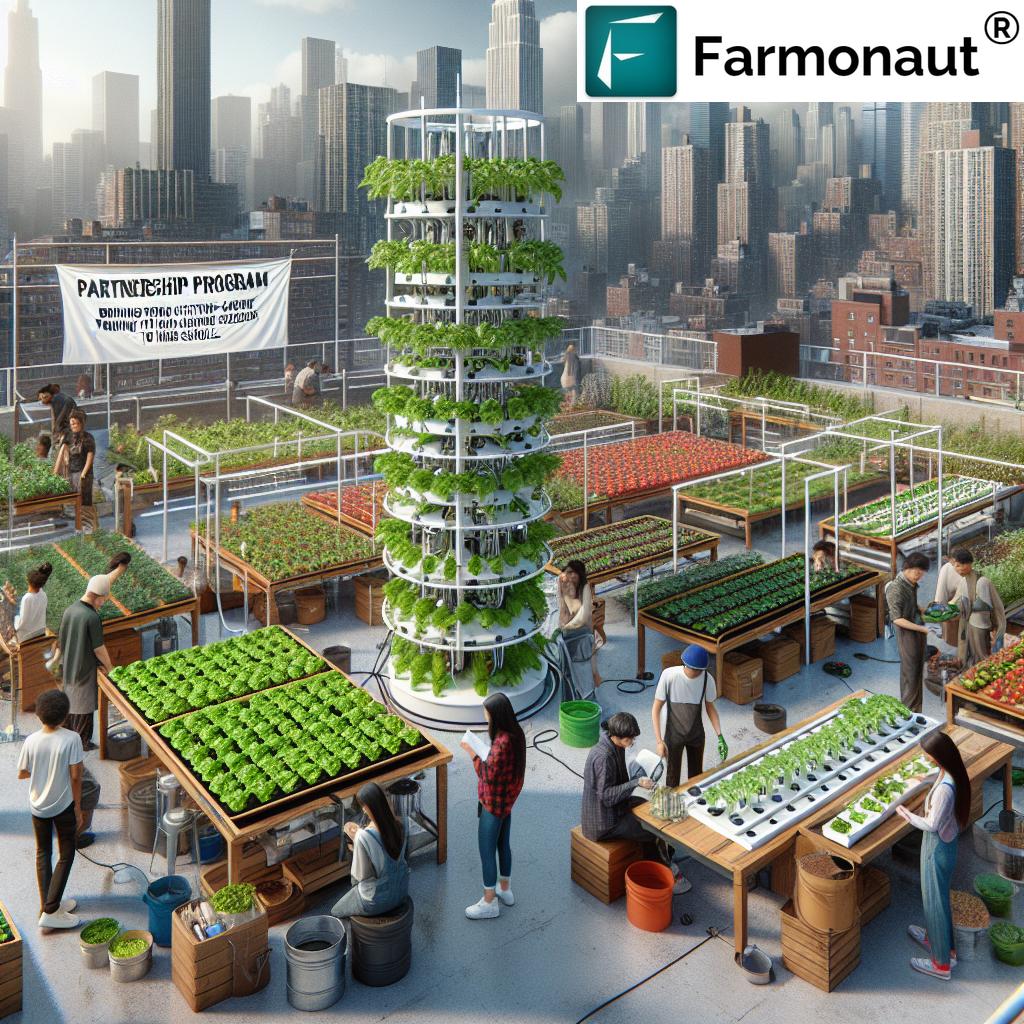Revolutionize Your Garden: Unlock College Credits and Master Vertical Farming with Glenwood City’s Innovative Horticulture Program

In an exciting development for aspiring agriculturists and horticulture enthusiasts, Glenwood City High School has launched a groundbreaking agricultural education program that’s set to transform the way students learn about sustainable farming practices. This innovative initiative not only offers high school horticulture college credits but also introduces students to cutting-edge vertical farming techniques, positioning them at the forefront of modern agriculture.
Earn College Credits While Still in High School
The Glenwood City horticulture course is making waves in the educational community by offering students the unique opportunity to earn college credits in high school. This forward-thinking approach is part of a broader strategy to prepare students for the challenges and opportunities of the 21st-century agricultural landscape.
Miss Konder, the instructor spearheading this initiative, emphasizes the significance of this opportunity: “It is a wonderful chance for our students to gain college credits before they even graduate from high school. They will acquire valuable knowledge and skills while saving thousands of dollars on their post-secondary education.”
- Students can earn up to three credits from Chippewa Valley Technical College (CVTC)
- The program offers a seamless transition to higher education in agriculture and horticulture
- Participants gain a competitive edge in college admissions and future careers
Introducing the Fork Farm Hydroponic Tower
Thanks to the newly established CVTC partnership, Glenwood City High School has received a state-of-the-art Fork Farm hydroponic tower. This remarkable piece of innovative agricultural technology is set to revolutionize the way students learn about hydroponics in classroom settings.

The Fork Farm hydroponic tower for schools is a game-changer in agricultural education. Here’s why:
- It can grow up to 288 plants simultaneously
- Uses water-based technology to cultivate fresh lettuce and herbs
- Provides hands-on experience with urban farming techniques
- Demonstrates the principles of sustainable agriculture in action
This vertical farming education program is not just about growing plants; it’s about cultivating a new generation of agriculturists equipped with the skills to address global food security challenges.
Practical Applications and Community Benefits
The produce grown in the hydroponic tower isn’t just for show. Miss Konder explains that the fresh lettuce and herbs will be incorporated into the school lunch program and used in FACS/agriculture classrooms. This practical application of hydroponics in classroom agriculture demonstrates the real-world impact of sustainable farming techniques.
Students participating in the Glenwood City sustainable agriculture course will gain invaluable insights into:
- Efficient water usage in agriculture
- Nutrient management in hydroponic systems
- Year-round crop production techniques
- The economics of vertical farming
Interested in exploring more innovative agricultural technologies? Check out the  for cutting-edge farming solutions.
for cutting-edge farming solutions.
Addressing Global Challenges Through Local Education
The introduction of vertical farming and urban farming techniques for students at Glenwood City High School is timely and crucial. With the world’s population growing rapidly and arable land diminishing due to urbanization, innovative farming methods are becoming increasingly important.
By incorporating these innovative agricultural technology in education programs, Glenwood City is preparing its students to tackle some of the most pressing issues facing modern agriculture:
- Food security in urban environments
- Sustainable use of resources in farming
- Adaptation to climate change impacts on agriculture
- Integration of technology in traditional farming practices
For farmers and agricultural professionals looking to leverage satellite technology for crop monitoring, explore the Farmonaut Satellite API.
The Future of Agriculture Education
The Glenwood City agricultural program is setting a new standard for agricultural education programs across the country. By combining traditional horticultural knowledge with cutting-edge technology and sustainable practices, the program is creating a blueprint for the future of agriculture education.
Key components of this forward-thinking approach include:
- Integration of college-level coursework in high school curriculum
- Hands-on experience with advanced farming technologies
- Focus on sustainable and environmentally friendly farming practices
- Preparation for careers in both traditional and emerging agricultural fields
Developers and agri-tech enthusiasts can dive deeper into Farmonaut’s capabilities by checking out the API Developer Docs.
Empowering the Next Generation of Farmers
The Glenwood City horticulture program is more than just a course; it’s a gateway to the future of farming. Students who complete this program will be well-equipped to:
- Pursue higher education in agriculture and related fields
- Start their own urban farming ventures
- Contribute to research and development in sustainable agriculture
- Address food security issues in their communities and beyond
By providing students with both theoretical knowledge and practical skills in vertical farming and hydroponics, Glenwood City is nurturing a generation of agricultural innovators who will shape the future of food production.
Take your farming knowledge on the go with the Farmonaut mobile apps:
Conclusion: A Green Revolution in Education
The innovative horticulture program at Glenwood City High School represents a significant leap forward in agricultural education. By offering high school horticulture college credits and introducing students to advanced vertical farming techniques, the school is not just teaching agriculture; it’s cultivating the seeds of a sustainable future.
As we face global challenges such as climate change, food security, and urbanization, programs like this are essential in preparing the next generation to innovate and adapt. The Glenwood City initiative serves as a shining example of how education can evolve to meet the needs of a changing world, empowering students to become leaders in sustainable agriculture and urban farming.
With the integration of innovative agricultural technology in education and a focus on practical, forward-thinking solutions, Glenwood City is not just teaching students about farming – it’s helping them grow the future of agriculture.

